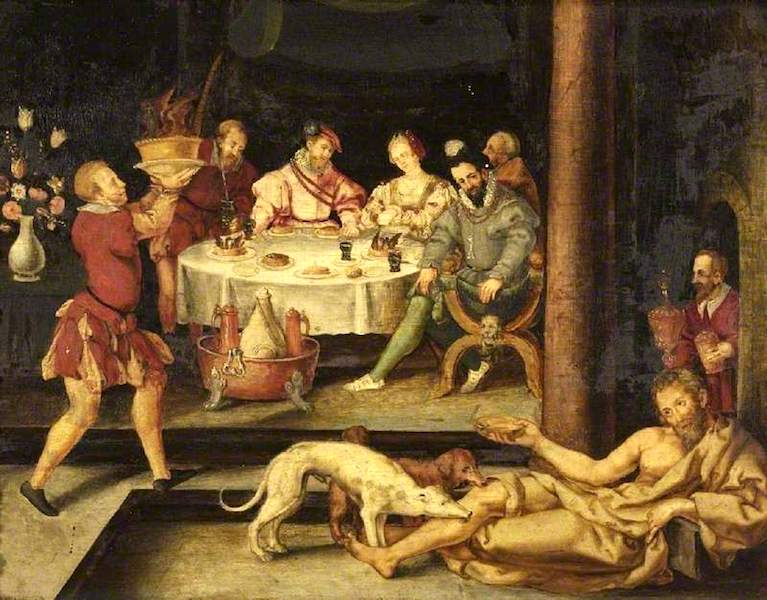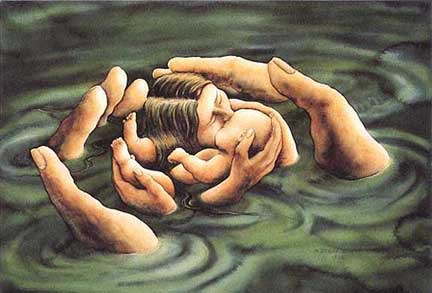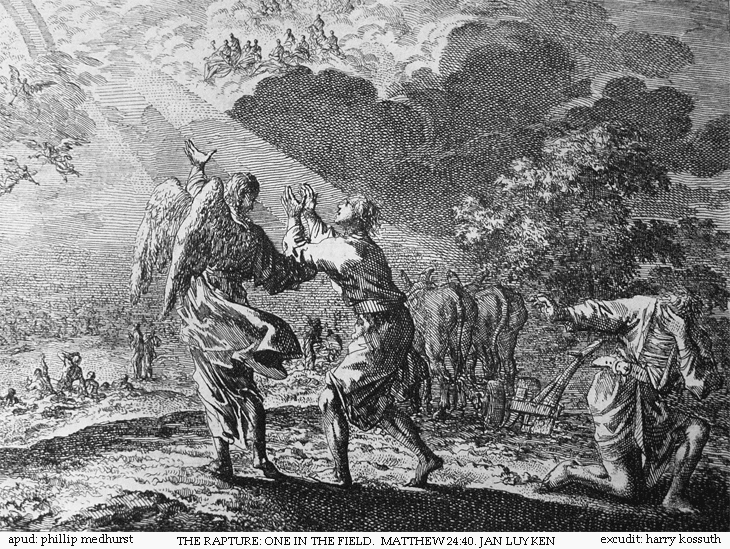Their meeting started off as deferential as one might expect of a meeting between man and God. Abraham bowed, stooped and ran hither and thither in a herculean effort to host heaven. His offering of a roast dinner left God breathless. Unasked, unprompted, God began to talk.

It wasn’t to complement him on the delicious leg of lamb nor the overly enthusiastic reception Abraham accorded him. The Lord seized that moment to introduce the little matter of Sodom and Gomorrah to their valedictory exchanges. His reason? The promise to bless the world through Abraham hinged upon all who would sign up to the Abrahamic covenant learning from Abraham, to “keep the way of the LORD, to do justice and judgement… [1]Genesis 18:19
There are of course lots to learn from the story of Abraham. The mind-boggling trial on Mount Moriah is a pulpit favourite. The call to sacrifice all for God is what most churches feed upon. As potent as the binding of Isaac may be, it’s not the legacy God challenged Abraham to leave behind. The challenge was to raise generations that would keep the ways of God by doing justice and judgement.
Faith was not the legacy God challenged Abraham to leave behind.
To underscore the importance of lessons to be drawn from this encounter he referred to it 1,352 years later through the prophet Isaiah:
“Hearken to me, ye that follow after righteousness (meaning Tzedakah, interchangeable with justice), ye that seek the LORD: look unto the rock whence ye are hewn, and to the hole of the pit whence ye are digged. Look unto Abraham your father, and unto Sarah that bare you: for I called him alone, and blessed him, and increased him.” [2]Isaiah 51:1-2
700 years later the Lord Jesus Christ returned to the same theme. To all who claim to be children of Abraham he said:
“…If ye were Abraham’s children, ye would do the works of Abraham.” [3]John 8:39
In other words your claim to the faith, covenant or blessing of Abraham could only be certified by doing the sort of works Abraham did.
Jesus decried the monomaniacal pre-occupation with tithes and offerings. Luke 11:42
What works did Abraham do?
The answer to that question takes us right back to the repartee between Abraham and God, the issue of justice and judgement and the fate of Sodom and Gomorrah.
Having just quietly announced that Abraham’s children needed to do justice and judgement, he told Abraham he was on his way to Sodom and Gomorrah to undermine those hallowed principles. Abraham was appalled. He stood up to God:
“Wilt thou also destroy the righteous with the wicked?…That be far from thee to do after this manner, to slay the righteous with the wicked… Shall not the Judge of all the earth do right?” [4]Genesis 18:20
God is not unrighteous. God needed no lesson from flesh and blood on how to be merciful and just. But it was important to God that Abraham could demonstrably teach these principles, and insist on people honouring them, even at the risk of undermining his most treasured relationships. It was therefore a good start that Abraham stood for these principles. It was equally important that Abraham should raise a family nurtured on them.
To do charity is to do justice.
We hear a lot from the pulpit about what it takes to live the spiritual life. There is a lot of emphasis on personal morality – and rightly so; the prophets of Israel lamented the absence of moral rectitude in ancient Israel. Among Pentecostal congregations there is a monomaniacal pre-occupation with tithes and offerings, a predilection that Jesus decried. [5]Luke 11:42 However, that with which God was most concerned was about recreating a world dedicated to the pursuit of justice and judgement.
Biblical emphasis on the pre-eminence of justice and judgement as the foundation for membership of the covenant faith is writ large. Long before eschatological theology took over the spiritual imagination, long before we decided that we came from God to labour for the reward of returning to God, God taught that he was more interested in the contributions we make towards a better world.
So what is justice and judgement?
In Hebrew they mean Tzedakah and Mishpat, Charity and Law. They cannot be understood in the light of any other culture or tradition, but only in the contexts within which God used them to instruct Abraham and his descendants. Tzedakah as charity is not to be understood in the same sense as handing out unearned goodies to the down and out as an expression of individual grace and benevolence. There’s a good reason it’s interchangeable with ‘justice’, a construct by which wrongs are redressed and equity is enforced.
To appreciate this would require one to start from the premise that however inevitable it is that there will always be need, lack, want and powerlessness in the world, they are nonetheless aberrations in the divine reckoning. Whatever one does to redress such situations amounts to putting things right, doing justice – relieving oppressive and unjust social and material conditions.
Justice and judgement are not mutually exclusive. It’s not one or the other. Neither is it one and then the other. They are an indivisible whole. To do charity is to do justice and, for good measures, it’s an imperative that’s backed up by the power of the law (read judgement):
“But thou shalt open thine hand wide unto him, and shalt surely lend him sufficient for his need, in that which he wanteth. Beware that there be not a thought in thy wicked heart, saying, The seventh year, the year of release, is at hand; and thine eye be evil against thy poor brother, and thou givest him nought; and he cry unto the LORD against thee, and it be sin unto thee.” [6]Deuteronomy 15:8-9
That’s the reason the Psalmist called God the “Judge of the widow”, meaning defender, not adjudicator.
The neglecting of justice and judgement has the world all bent out of shape.
Justice and judgement are the articles of the covenant faith, God’s proposed instruments for maintaining a socio-economic balance within His world. They show that God isn’t all about how we get to heaven, but that every soul, especially the poor and the vulnerable, has a pleasant experience while he or she walks the earth. That was meant to be the kernel of the Abrahamic contract.
God had no illusions about his world. He did not create a utopia. As Moses told the children of Israel, the poor will never cease from the land. [7]Deuteronomy 15:11 God did not set much store by the market economy. He wouldn’t consign his children to the vagaries of whimsical social forces nor leave the weak at the mercy of the strong. He wanted those who would come into great levels of wealth and privilege to acquaint themselves with how things must work in his world.
Asaph envisioned God giving the high and mighty a right royal roasting because their neglecting of justice and judgement had the world all bent out of shape. He wrote:
“God standeth in the congregation of the mighty; he judgeth among the gods. How long will ye judge unjustly, and accept the persons of the wicked? Selah.
Defend the poor and fatherless: do justice to the afflicted and needy. Deliver the poor and needy: rid them out of the hand of the wicked.
They know not, neither will they understand; they walk on in darkness: all the foundations of the earth are out of course.
I have said, Ye are gods; and all of you are children of the most High. But ye shall die like men, and fall like one of the princes.” [8]Psalm 82:1-7
So when God goaded Abraham into challenging him on Sodom and Gomorrah, it wasn’t all about the roast. God was not so bowled over to pass on an opportunity to plug a divine agenda. The future of his world needed that moment. He knew Abraham enough to not need to draw him out. But he needed to play Abraham for the sake of all who would become Abraham’s children – both biological and spiritual.
The rich man ends up in hell, not for any evil that he did, but for the good he didn’t do.
That point was lost on the character in Jesus’ parable of ‘The Rich Man and Lazarus’. The rich man has wealth. Lazarus has sores. The rich basks in the comfort and pleasure that his grit and toil earned him, while Lazarus could only dream of scheming off crumbs from the rich man’s table. There are no suggestions that the rich man oppressed Lazarus. In fact there are no suggestions that he takes any notice of Lazarus, despite Lazarus camping at the rich man’s gates.
At the end of days they trade places. Lazarus ends up in Abraham’s bosom whereas the rich man ends up in hell, not for any evil that he did, but for the good he didn’t do. And how do we reach such a conclusion? Simple: The genius in Jesus planted Abraham at the centre of the story – as interlocutory judge!
The Good Book is at pains to educate man that all things (wealth and power inclusive) belong to God, and those who hold them do not own them, as enunciated in Leviticus 19:23 and 2 Chronicles 19:6. Wealth and power are held in trust, to be exercised at the pleasure of a God who delights in charity and probity. [9]Jeremiah 9:23-24 They are to be deployed towards the creation and sustenance of an equitable world.
In Jeremiah 22:15-16 we learn that to be exercised in them is to know God. Whereas in Deuteronomy 15:9 we’re told that to either ignore or be uninstructed in them is to risk sinning. Solomon who built a lavish temple for the sacrificial system wrote that:
“To do justice and judgement is more acceptable to the LORD than sacrifice.” [10]Proverbs 21:3
And Prophet Amos said these were the only grounds upon which to build a relationship with God. In his words:
I hate, I despise your feast days, and I will not smell in your solemn assemblies. Though ye offer me burnt offerings and your meat offerings, I will not accept them: neither will I regard the peace offerings of your fat beasts.Take thou away from me the noise of thy songs; for I will not hear the melody of thy viols. But let judgement run down as waters, and righteousness as a mighty stream. [11]Amos 5:21-24
The prophet Micah said much the same in Micah 6:6-8. James the Just called it ‘works’, without which faith is not worth sweating over. [12]James 2:14-20
Scriptures ascribe unrivalled significance to these covenantal articles. Isaiah 58:3-14 and Zechariah 7:1-10 said that the practice of these trumps prayer and fasting, Jeremiah 22:15-19 states that to ignore them is to risk being buried like an ass! Amos 5:4-24 says that without a practical regard to them, worship and services are anathema to God and Daniel 4:27 teaches that these have the potential to assuage divine anger.
The practice of justice and judgement is the starting point for engaging with heaven.
In the light of these scriptures, justice and judgement are too important to be considered requirements for the high and mighty only. Sometimes even the high and mighty have thirsts that wealth and power cannot slake. God did not create anyone totally bereft of qualities and characters to contribute to the good of his world. What Ruth lacked in wealth and privilege she made up for in abundance of love and supreme self-sacrifice. She individually upended the limitations the laws of Moses imposed upon her race in Deuteronomy 23:3!
Between Ruth, King Josiah [13]Jeremiah 22:15-16 and the various scriptures cited in this article, the practice of justice and judgement is the starting point for engaging with heaven. They unlock hidden treasures in heavenly places. They are offerings that God can’t refuse. Without these, in the words of Shakespeare’s Macbeth:
Faith is “…but a walking shadow, a poor player that struts and frets his hour upon the stage and then is heard no more: it is a tale told by an idiot, full of sound and fury, signifying nothing“.


